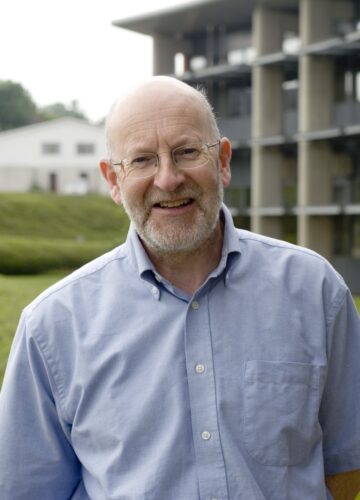Keith Goulding CSci, Sustainable Soil Research Fellow

Name: Keith Goulding
Job title: Sustainable Soil Research Fellow (Emeritus), Rothamsted Research
Professional Body: British Society of Soil Science
Scientist type: Entrepreneur/Investigator Scientist.
Social Media: Linkedin, Researchgate, Web of Science
Take our short 10 types of Scientist quiz to find your scientist type!
Why did you decide to apply for Chartered Scientist (CSci)?
I have always wanted to have impact from my research. While employed, I achieved this by speaking to farmers and advisers at agricultural conferences, to farmer groups at Rothamsted or on their farms, through committee work, e.g. LEAF’s Policy and Strategic Development Committee and the Council of the International Fertiliser Society, and through consultancy, e.g. with Unilever’s Sustainable Agriculture Advisory Group. Although I formally retired in 2017, I continue with committee and consultancy work. Having the professional qualification of Chartered Scientist provides me with independent, professional evidence to those using my professional services that I am competent to do this.
How has Chartered Scientist status made an impact on your work or career?
Since I retired, I have focussed on consultancy and committee work, principally through the International Fertiliser Society and the Ecological Continuity Trust (a registered charity). Recent consultancies have included review work for UK universities preparing for the Research Excellence Framework, membership of the International Science Advisory Group for the New Zealand Greenhouse Gas Research Programme and advising the Worshipful Company of Farmers (a Livery Company) on their research reports. There have also been occasional requests to speak, e.g. at CropTec and to Kelloggs growers. Being a Chartered Scientist and submitting Continual Professional Development (CPD) returns challenges me to keep up to date with current research and its application and to regularly assess my competence against professional standards. It enables me to continue to prove my ability to deliver cutting-edge, professional research information and advice and so market my services.
What did learn through completing the application process?
Becoming a Chartered Scientist, and probably any chartered status, is a serious process and not to be undertaken lightly.
What do you value most from being a member of your professional body?
Being a member of my professional body gives me proven, authoritative validation of my abilities within my area of expertise. It enables those of us with academic qualifications to prove our professional competence and show that our research is applied by the user community and so has impact. As noted above, it challenges me to keep up to date with R&D and policy developments.
What would you say to any other scientist like yourself who is thinking about becoming a Chartered Scientist?
I consider a professional qualification such as CSci to be essential for anyone engaged in any form of consultancy, and strongly recommend it to BSSS members. It took considerable time and effort for the Society to attain chartered status for soil scientists, and Society members should take full advantage of it. With so much current interest in soil and so many, often unqualified people willing to make statements about soil health and sustainability, it is essential that we professional soil scientists take a clear lead and can prove that we are uniquely capable of speaking with knowledge and authority.
Become professionally registered
Inspired? Find out how to apply to become a Chartered Scientist.
